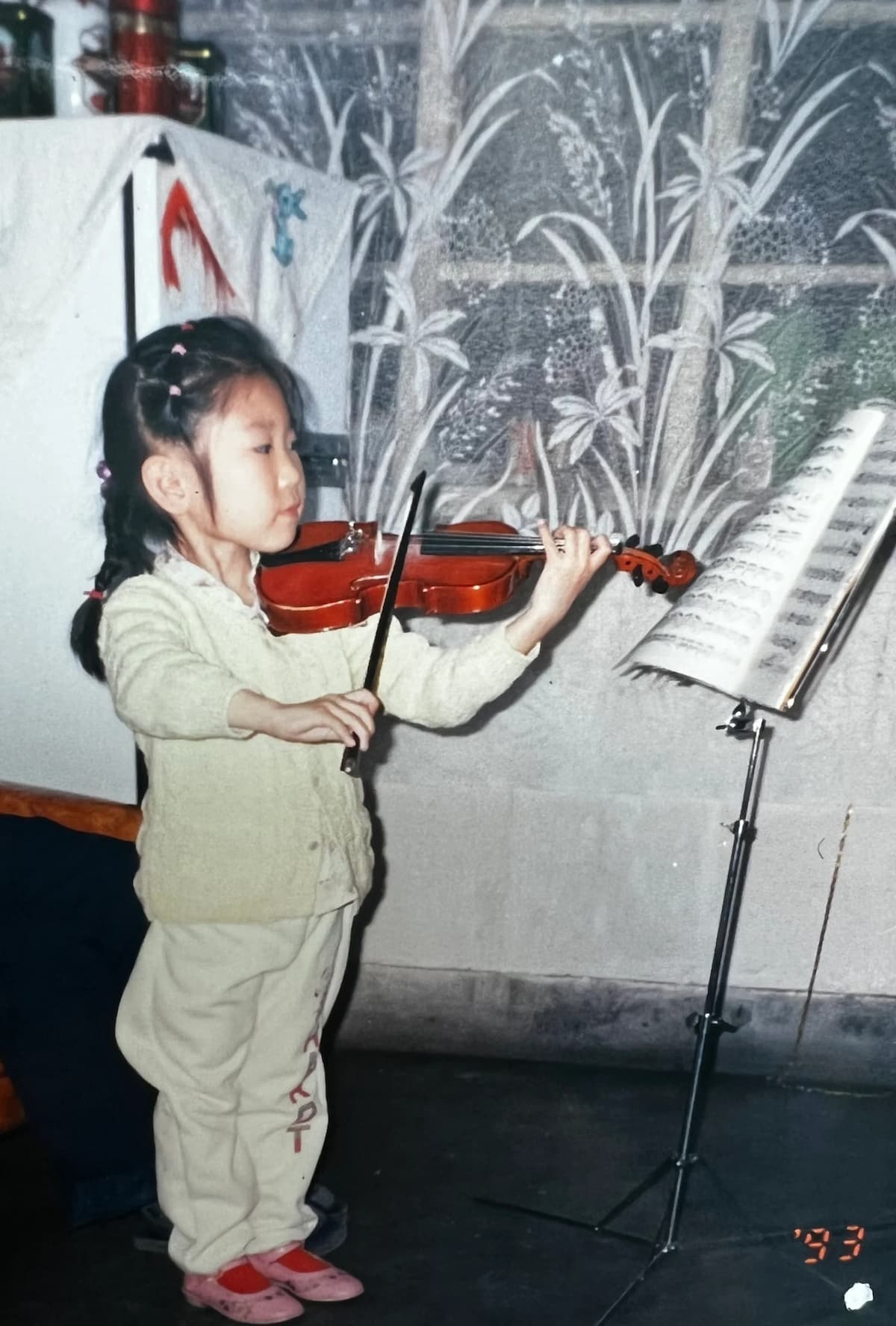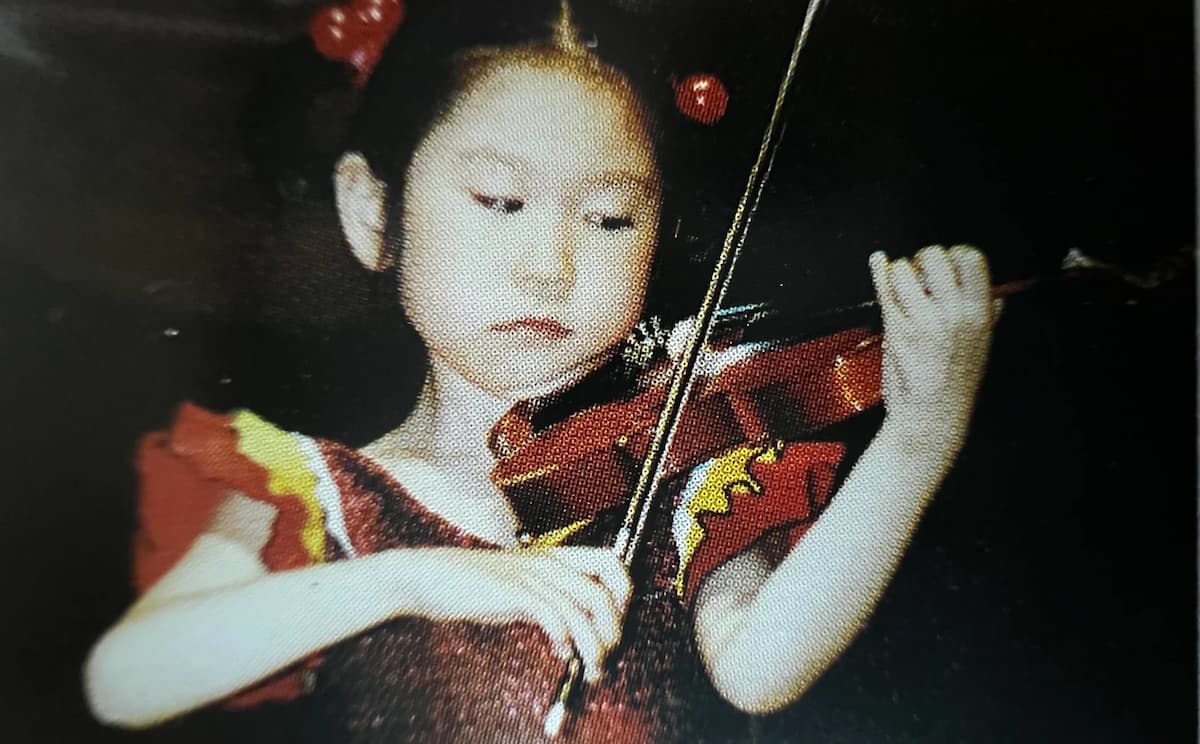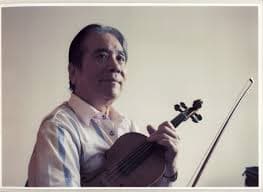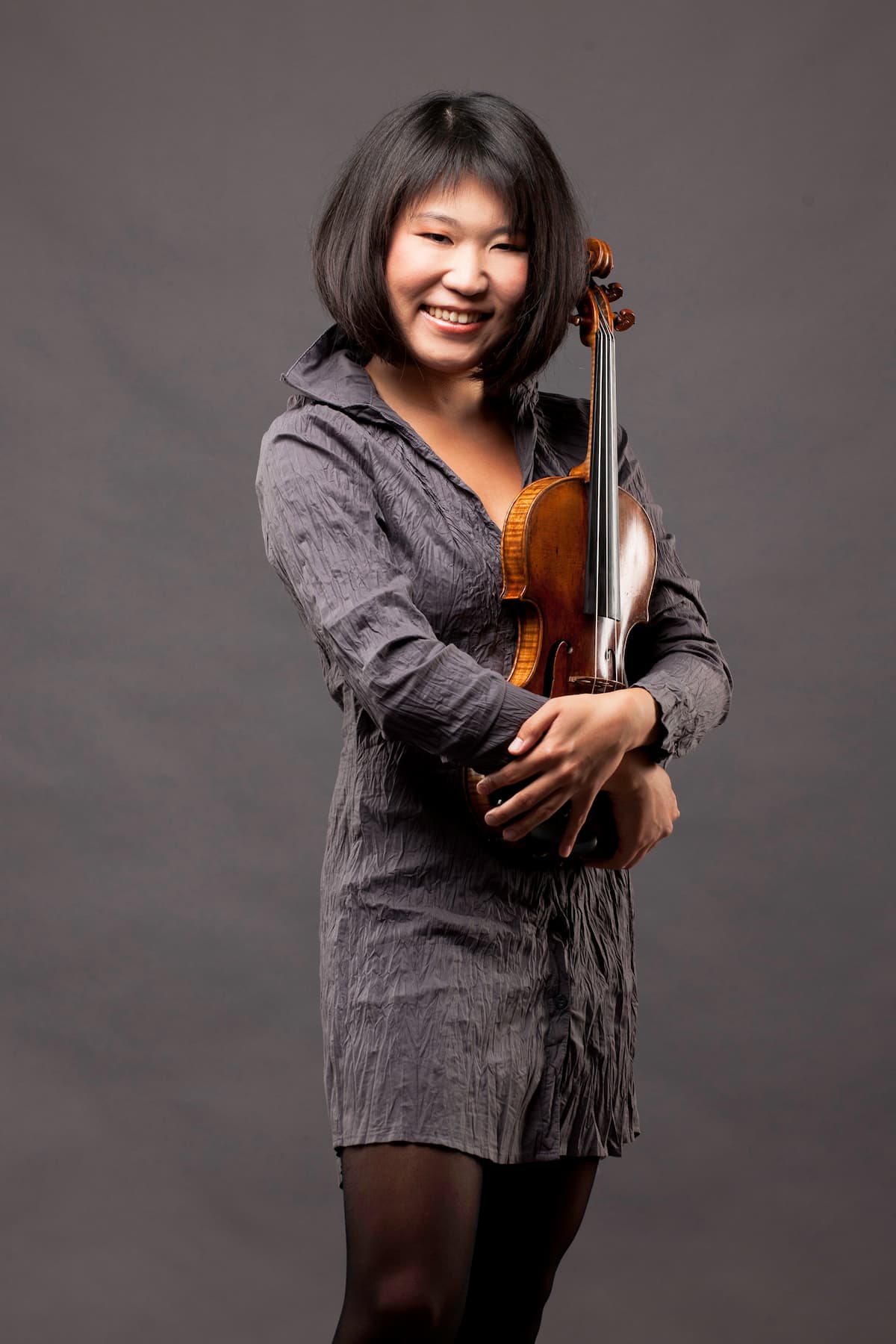Hailed as one the most important violinists to come onto the scene in recent memory, Tianwa Yang won the prestigious ECHO Klassik Instrumentalist of the Year Award in 2015. A Beijing native, Ms. Yang has performed in concert halls across Europe, Australasia, and North America, and collaborated with renowned conductors worldwide. “An unquestioned master of the violin who rises above her competition,” Yang has established herself as a leading international performer and recording artist, and she currently teaches at the University of the Arts, Bern, Switzerland, and the University of Music, Würzburg, Germany.
Tianwa Yang Plays Sarasate’s Caprice Basque, Op. 24
Beijing

Tianwa Yang as a girl
The daughter of a car mechanic and an accountant, Tianwa Yang was born on 8 April 1987 in China’s capital city of Beijing. Her parents were not musicians nor musically inclined, but still, they thought it was really important for children to learn some music. By pure luck, the only music kindergarten in Beijing was just a short distance away, and since her parents could not afford a piano, it was decided that Tianwa would learn the violin.
Learning a musical instrument was, and to some extent still is, highly fashionable in Beijing. Yang started lessons at the age of 4, and her musical talent and perfect pitch were recognized immediately. She made unbelievable progress, and according to local customs, Tianwa was thrust into playing competitions as a young student. She entered her very first competition after only having played the violin for 8 months.
Sergei Prokofiev: Violin Concerto No. 1 in D Major, Op. 19 (Tianwa Yang, violin; ORF Vienna Radio Symphony Orchestra; Jun Märkl, cond.)
Early Competitions

Yang won six out of seven national competitions before the age of 10. She remembers, that she really didn’t like competitions and that her teacher at that time also saw it that way. “Somehow, I had to find my own way,” she explained. Winning competitions at an early stage provided Yang with the opportunity to study with an internationally trained teacher. As Yang explained, “most of the best violin teachers in China were trained in Russia, and having a good teacher when you are young is so important.”
Her family did not have enough money to pay for expensive lessons, but a number of teachers would give lessons for free if you were really talented. That particular custom, according to Yang, “is still quite common in China.” Yang counts herself lucky that her main mentor, one of the most famous Russian-trained teachers Lin Yao Ji, taught her out of his generosity from age 10 until 16.
Eugene Ysaÿe: Sonata for Solo Violin in G Major, Op. 27, No. 5 (Tianwa Yang, violin)
Paganini Recording

Lin Yao Ji
Lin Yao Ji was known for bringing emerging talents to the attention of the world, and under his guidance Chinese contestants started to win international violin competitions. He also acted as a juror and adjudicator in the Sibelius and Tchaikovsky Competitions, and he clearly had plans for Tianwa Yang. He surprised her one day by handing her the entire book of Caprices by Paganini and told her, “Just practice all of them.”
Within a week or so, Lin Jao Ji organised 3 or 4 concerts of the whole set, and within a few months, he arranged recording dates with Hugo Records in Hong Kong. Yang remembers, “it took only two and a half days to record everything, and there wasn’t any patchwork at all; we just played through them all a couple of times.” At the age of 13, Tianwa Yang became the world’s youngest performer to record Niccolò Paganini‘s 24 Caprices on CD and she was quickly celebrated as the “pride of China.”
Tianwa Yang Plays Paganini’s 24 Caprices, “No. 10 in G minor”
Germany

Tianwa Yang
That particular recording made it possible for Yang to get a scholarship to the Central Conservatory in Beijing. As she remembers, “It’s really not that much money to study in the Conservatory, but we couldn’t afford it at the time. In retrospect, I think if you don’t get into the Central Conservatory or the Shanghai Conservatory, your chances for later are small.” At a performance at the Beijing Music Festival in 1999, Yang was noticed by Isaac Stern and he invited her to the United States.
Yang, however, did not want to study in America and become part of the virtuoso circuit. Instead, she had dreamed of studying German chamber music in Germany. She fulfilled her dream at age 16 when she received a scholarship to study in Germany over the summer while finishing her schoolwork in China. A special German Academic Exchange Service (DAAD) scholarship brought her to Europe for good at the age of 18. That scholarship offered her a two-year chamber music course with Jörg-Wolfgang Jahn at the Karlsruhe University of Music, and it allowed Yang, “to learn music from a completely different angle.”
For more of the best in classical music, sign up for our E-Newsletter
